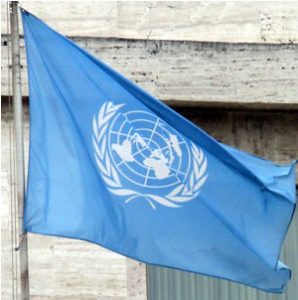
14-02-2017 (Important News Clippings)
To Download Click Here
Two hands
India should isolate Pakistani government while enhancing people-to-people interactions

There’s no denying that the time isn’t right to resume full-spectrum talks with the Pakistani government. Following the Uri terror attack on an Indian army camp last year, there’s nothing to suggest that Islamabad has taken concrete steps to curb anti-India terror. Against this backdrop, New Delhi has no choice but to lobby with friendly nations to diplomatically isolate Islamabad.
But at the end of the day, the people of Pakistan are also victims of their government’s irredentist policies: they suffer from terror attacks, limited democracy and suppression of rights. New Delhi must keep a door open to reasonable elements in Pakistan’s polity. People-to-people contacts between India and Pakistan are the best way to cultivate a constituency for peace. In this regard, the government must act to lift the veritable ban on Pakistani artistes performing in India. This would also reciprocate Pakistan’s recent gesture of lifting its ban on Bollywood films. Cultural exchanges will only supplement India’s overall strategic objective vis-à-vis Pakistan. Moreover every positive move by Pakistan should be met with a bigger one from India, to convey the message that India sees no fundamental enmity between the two nations.
India could host the UN, in a brand-new town

While the precise reason for visa refusal has not been disclosed, it is perceived to be linked to restrictions on religious groups. Combine this with the controversial travel bans on seven Muslim-majority states and President Donald Trump’s stated desire to keep Muslims out, and it becomes crystal clear that an America-First America would no longer be suited for hosting a global forum such as the UN.
People from all countries need to travel to the UN, regardless of their denominational or ideological compatibility with the incumbent US administration. It is time to relocate the UN.Of course, the US would slash its significant UN contributions: 22 per cent of the regular budget and 28 per cent of the peacekeeping budget. There is no reason why the rest of the world should not pull its proportionate weight when it comes to sharing the UN’s financial burden.
US politicians and its conservative media have been hollering for long to slash US payments to the UN. Where can the UN relocate? Switzerland would be a natural choice for lots of people, with its long policy of neutrality, political and financial stability and capacity to provide security. China could also make a strong pitch and back it up with a large promise of funding.
Yet, India would be the ideal place to house a relocated UN. India is culturally diverse, can avoid extreme weather, is reasonably well-connected to the rest of the world, besides being a democracy that offers great food, fine beaches, warm hospitality and an ancient culture of intricate bureaucracy. Can India afford it? India desperately needs to urbanise for reasons to do with its internal growth dynamics.A brand-new town can be built to house the UN, complete with a new airport and fast rail and air connectivity to the larger towns. The project can attract global funds and would give a fillip to the sagging economy.
Date:14-02-17
Collect tax but don’t terrorise taxpayers

To those used to the ways of the I-T department, it is an ominous missive, whose follow-through, if not necessarily its denouement, could prove harrowing. Apparently, formal notices will follow for those who have no convincing explanations.
Instead of scoring a large self-goal by way of needless unpopularity, the government could wait for people to disclose the source of their cash deposits when they file their income-tax returns later this year.So, the tax return form should be redesigned to accommodate a special schedule for disclosures on cash deposits made between November 8 and December 30 last year. Preliminary government data shows an average deposit size of .`5.03 lakh in 1.09 crore accounts. About five crore tax returns are filed, but less than 1% are taken up for scrutiny.
Given that demonetisation was a one-off exercise, the tax department can always take up more cases for computer-assisted scrutiny this year. Action must be taken to fight tax evasion, indisputably. But strong-arm measures will be counterproductive, and the need is for the department to minimise interface with the taxpayer.A modern tax administration calls for intelligent use of technology and use of big data to track evaders. Already, the annual information returns, filed by third parties that include banks, take the department half the way there. The department should walk the remaining distance, not force potential taxpayers to run scared.
और करीब आएंगे भारत-अमेरिका
बीते दिनों अमेरिकी राष्ट्रपति डोनाल्ड ट्रंप ने प्रधानमंत्री नरेंद्र मोदी से टेलीफोन पर बातचीत की। ट्रंप ने भारत को अमेरिका का ‘सच्चा साथी और साझेदार’ बताते हुए मोदी को अमेरिका आने का न्योता दिया। दोनों नेताओं ने आतंक के खिलाफ कंधे से कंधा मिलाकर काम करने की सहमति के साथ ही रक्षा एवं आर्थिक रिश्तों को मजबूत बनाने की प्रतिबद्धता जताई। मोदी दुनिया के पांचवें ऐसे नेता रहे जिन्हें ट्रंप ने राष्ट्रपति बनने के बाद फोन किया। इस मामले में मोदी को चीन और रूस सहित तमाम अन्य देशों के नेताओं पर तरजीह दी गई। बाद में मोदी ने भी ट्वीट के जरिये कहा कि द्विपक्षीय रिश्तों को और मजबूत बनाने के लिए वे मिलकर काम करेंगे।
साथ ही मोदी दुनिया के उन चंद नेताओं में से भी एक रहे जिनसे पूर्व अमेरिकी राष्ट्रपति बराक ओबामा ने अपने कार्यकाल के अंत में ट्रंप के शपथ ग्रहण से पहले फोन पर बातचीत की थी। दोनों नेताओं ने द्विपक्षीय रिश्तों में व्यापक प्रगति की समीक्षा की जिसमें मोदी ने दोनों देशों के सामरिक रिश्तों में मजबूती के लिए ओबामा का आभार व्यक्त किया। निवर्तमान अमेरिकी राजदूत रिचर्ड वर्मा ने मोदी सरकार के सत्ता में आने के बाद के दो वर्षों को दोनों देशों के रिश्तों का सबसे बेहतरीन दौर बताया। दोनों देशों के रिश्तों में आई नई तेजी ओबामा की चुनिंदा सफलताओं में एक रही अन्यथा विदेश नीति के मोर्चे पर उनका प्रदर्शन ढुलमुल ही रहा। मगर आठ साल पहले जब उन्होंने शुरुआत की थी तब ओबामा का भारत को लेकर ऐसा रवैया नहीं था। असल में जॉर्ज डब्ल्यू बुश के कार्यकाल में ही भारत-अमेरिकी संबंधों में अप्रत्याशित सुधार आया जब बुश ने एंटी-बैलिस्टिक मिसाइल संधि को खत्म कर दिया। वहीं भारत ने अमेरिकी मिसाइल रक्षा योजनाओं का समर्थन किया। यहां तक कि भारत ने अफगानिस्तान में ‘आतंक के खिलाफ युद्ध’ में अमेरिका को सैन्य ठिकाने देने की पेशकश भी कर दी। दोनों देशों ने 2004 में रक्षा सहयोग के नए ढांचे पर सहमति जताई। वर्ष 2005 में सामुद्रिक सहयोग समझौते पर दस्तखत किए और 2007 आते-आते भारत ने अमेरिका से अहम रक्षा उपकरण खरीदने भी शुरू कर दिए । इसकी परिणति भारत-अमेरिका असैन्य परमाणु ऊर्जा करार के रूप में हुई। इससे भारत को एक प्रमुख सामरिक लक्ष्य हासिल करने में मदद मिली। इससे भारत को परमाणु शक्ति संपन्न राष्ट्र का वैधानिक दर्जा
मिल गया। बुश का कार्यकाल पूरा होने के बाद ओबामा प्रशासन के शुरुआती दौर में भारत-अमेरिका सामरिक साझेदारी कुछ सुस्त पड़ गई। यहां तक कि ओबामा की ताजपोशी के पहले कुछ खतरे के संकेत भी दिखने लगे थे। बतौर सीनेटर ओबामा ने परमाणु करार का विरोध किया था। साथ ही अपनी अफगानिस्तान नीति के निर्माण में वह भारत और पाकिस्तान को एक तराजू पर तौलते हुए कश्मीर को वापस एजेंडे में शामिल कर रहे थे। इसकी भारत में कड़ी आलोचना हुई। इससे भी महत्वपूर्ण क्षेत्रीय मसलों को सुलझाने के लिए ओबामा जी-2 के रूप में चीन के साथ जिस जुगलबंदी की कोशिशों को लेकर शुरुआती दौर में बेहद गंभीर थे उस पर भी भारत को कड़ी आपत्ति थी। भारत में इसे जॉर्ज डब्ल्यू बुश की सख्त चीनी नीति के उलट और अमेरिका और चीन की बढ़ती गलबहियों के रूप में देखा गया
जिसने क्लिंटन प्रशासन की याद ताजा कराई जब भारत चीन और अमेरिका दोनों के बराबर निशाने पर हुआ करता था। यहां तक कि जब इसमें सुधार के लिए एशिया पर ध्यान केंद्रित करने की रणनीति बनाई गई तब भी अमेरिका और चीन की नजदीकियों को लेकर भारत की चिंता बनी रही। सामरिक अनिश्चितता और अमेरिकी ताकत में आ रही कमी के बढ़ते भाव के साथ ही गुटनिरपेक्षता की कांग्रेसी ग्रंथि भी सक्रिय हो गई। कांग्रेस में कई नेता अमेरिका के साथ पींग बढ़ाने की मनमोहन सिंह की कोशिशों से इत्तेफाक नहीं रखते थे। परमाणु करार के दौरान जब मनमोहन सिंह ने आर या पार वाली रणनीति अपना ली तो कांग्रेस के पास प्रधानमंत्री के पीछे लामबंद होने के अलावा और कोई चारा नहीं बचा था। हालांकि अपने दूसरे कार्यकाल में मनमोहन सिंह की स्थिति खासी कमजोर हो गई थी। इसमें उनकी सरकार के खिलाफ लगातार जोर पकड़ते भ्रष्टाचार के मामलों और कांग्रेस आलाकमान से बढ़ती दूरियां मुख्य रूप से जिम्मेदार थीं। ऐसे में ओबामा प्रशासन के शुरुआती दो वर्षों में मनमोहन सिंह के कमजोर नेतृत्व को देखते हुए रिश्तों को परवान चढ़ाने की कवायद फलीभूत नहीं हो पाई। प्रधानमंत्री के रूप में मोदी की ताजपोशी वह निर्णायक क्षण था जिसकी भारत-अमेरिका रिश्तों को तेजी देने के लिए दरकार थी। प्रधानमंत्री बनने के तीन महीनों के भीतर ही मोदी ने ओबामा के साथ शिखर सम्मेलन स्तर पर वार्ता की।
तमाम लोग मान रहे थे कि मोदी अतीत में अमेरिका द्वारा वीजा न दिए जाने की खुन्नस निकालेंगे, लेकिन ऐसी धारणाओं को धता बताते हुए उन्होंने अमेरिका के साथ कूटनीतिक सक्रियता बढ़ाई। मोदी ने स्पष्ट रूप से कहा कि दोनों देशों के बीच रिश्ते व्यक्तिगत व्यवहार से प्रभावित नहीं हो सकते। भारत-अमेरिकी रिश्तों को वह स्वाभाविक साझेदार के तौर पर देखते हैं। मनमोहन सिंह के माफिक ही मोदी ने भी एशियाई सामरिक परिदृश्य को भी सामरिक अनिश्चितताओं के चश्मे से ही देखा। हालांकि उनके मुताबिक यह भारत जैसे देशों के लिए अधिक जिम्मेदारी के रूप में परिणत होनी चाहिए। इसका जोर जिम्मेदारी पर है जो पिछली सरकार की रणनीति से काफी अलग है। साथ ही बीजिंग के साथ रिश्ते सुधारने की कवायद में भी मोदी ने भारत की आपत्तियां जताने से गुरेज नहीं किया है। जापान दौरे में पूर्वी और दक्षिणी चीन सागर में चीनी नीतियों पर निशाना साधते हुए मोदी ने कहा था कि कुछ देश अभी भी 19वीं सदी वाली मानसिकता और विस्तारवाद में ही जी रहे हैं। संयुक्त राष्ट्र के भाषण में भी उन्होंने इन सागरों में मुक्त आवाजाही पर जोर दिया। भारत की बढ़ती शक्ति को अमेरिकी स्वीकृति का संदेश देने के अहम कदम के तौर पर राष्ट्रपति ओबामा गणतंत्र दिवस पर मुख्य अतिथि बने।
उस दौरे ने दोनों देशों के बीच परमाणु करार पर परमाणु देनदारी जैसे विवादित मुद्दों को सुलझाने का काम किया। दोनों देशों ने रक्षा व्यापार एवं तकनीकी पहल यानी डीटीटीआइ के जरिये रक्षा उपकरणों के साथ में विकास और संयुक्त उत्पादन पर सहमति जताई। ओबामा के कार्यकाल के अंत तक अमेरिका ने भारत को ‘प्रमुख रक्षा साझेदार’ का दर्जा दे दिया जिससे भारत अमेरिका के बेहद करीबी सहयोगियों में शुमार हो गया। द्विपक्षीय रिश्तों से परे दोनों देश अब व्यापक क्षेत्रीय मुद्दों पर एक जैसी सोच रखते हैं। वर्ष 2015 में मोदी और ओबामा द्वारा तैयार ‘एशिया प्रशांत एवं हिंद महासागर में भारत-अमेरिका संयुक्त सामरिक दृष्टिपत्र’ क्षेत्रीय सुरक्षा में सहयोगी रवैये की दिशा में पहला बड़ा कदम है। इसमें शांति, समृद्धि और स्थायित्व सुनिश्चित करने में दुनिया के दो सबसे बड़े लोकतंत्रों की प्रतिबद्धता प्रदर्शित होती है। भारत को लेकर ओबामा खासी संतुष्टि के साथ विदा हुए होंगे। मगर इसमें मोदी का भी अहम योगदान रहा जिन्होंने भारतीय विदेश नीति में अमेरिका को इतनी अहमियत दी। ऐसे में कोई हैरानी वाली बात नहीं होगी कि ओबामा की तमाम विरासतों पर विराम लगाने से इतर ट्रंप भारत के साथ रिश्तों को मजबूत बनाने की उनकी मुहिम को नए क्षितिज पर ले जाएंगे। अगर वह इस बात को लेकर गंभीर हैं तो उन्हें मोदी के रूप में एक बढ़िया साझेदार मिलेगा। [ लेखक हर्ष वी पंत, किंग्स कालेज लंदन में प्रोफेसर हैं ]
Date:14-02-17
श्रम सुधारों का समय
केंद्र सरकार की ओर से सुधारों को आगे बढ़ाने और इस क्रम में श्रम सुधारों को विशेष प्राथमिकता देने की जो तैयारी की जा रही है वह वक्त और जरूरत की मांग है। सबसे बड़े सुधार के रूप में वस्तु एवं सेवा कर यानी जीएसटी को अमल में लाने की तैयारी के बीच श्रम सुधारों की दिशा में आगे बढ़ना और आवश्यक हो जाता है। इसके अतिरिक्त नोटबंदी के बाद उपजे माहौल को देखते हुए भी श्रम सुधारों की महत्ता बढ़ गई है। एक ऐसे समय जब मोदी सरकार अपने कार्यकाल का तीसरा वर्ष पूरा करने जा रही है तब खुद उसे भी यह अहसास होना चाहिए कि वह श्रम सुधार के मुद्दे पर वैसे कदम नहीं उठा सकी है जैसे कि अपेक्षित थे। निश्चित रूप से श्रम सुधारों की प्रक्रिया को आगे बढ़ाना आसान नहीं होगा। एक समस्या श्रम संगठनों के रुख-रवैये के रूप में है और दूसरी विपक्षी दलों के नजरिये के रूप में। राज्यसभा में विपक्ष का अभी भी बहुमत है। समस्या केवल यह नहीं है कि विपक्षी दल श्रम सुधारों की दिशा में उठाए गए कदमों का विरोध कर सकते हैं, बल्कि यह भी है कि उनकी ओर से ऐसा माहौल बनाया जा सकता है कि यह सरकार श्रमिकों के हितों की चिंता नहीं कर रही है। स्पष्ट है कि यदि सरकार श्रम सुधारों को लेकर गंभीर है तो उसे संसद के भीतर-बाहर सधे हुए कदमों से आगे बढ़ना होगा। श्रम सुधारों के मामले में जो प्रमुख सुधार आवश्यक हैं उनमें कुछ ऐसे हैं जिनका विरोध होना स्वाभाविक है। उदाहरण स्वरूप कम संख्या वाले कर्मचारियों की कंपनी को सरकार की मंजूरी के बिना बंद करने का मामला। आम तौर पर ऐसे प्रस्तावों के संदर्भ में यह प्रचारित कर दिया जाता है कि ऐसे सुधार श्रमिकों के हितों के प्रतिकूल होंगे। बेहतर हो कि ऐसी धारणा को प्रचारित करने वाले यह समझें कि छंटनी को तब आसान बनाया जाना अनुचित नहीं जब उसकी लागत अधिक कर दी जाए। स्पष्ट है कि छंटनी किए जाने वाले कर्मचारियों को बेहतर हर्जाना देने और श्रमिकों के न्यूनतम वेतन-भत्तों में वृद्धि सरीखे प्रस्ताव श्रम सुधारों की प्रक्रिया को आगे बढ़ाने में सहायक बन सकते हैं। यह सही है कि श्रम सुधार श्रमिकों के हित में होने चाहिए, लेकिन वे उद्योग-व्यापार जगत के भी अनुकूल होने चाहिए। श्रम सुधारों के मामले में अपने पुराने रुख पर जोर देने वालों को यह समझने की जरूरत है कि भारत उत्पादन और उत्पादकता के मामले में विकसित तो क्या अनेक विकासशील देशों से पीछे है और इसका एक बड़ा कारण अप्रासंगिक हो चुके श्रम कानून भी हैं। यदि मौजूदा श्रम कानून श्रमिकों के हितों की वास्तव में रक्षा करने में समर्थ होते जैसा कि रेखांकित किया जाता है तो श्रमिकों के हितों की इतनी चिंता नहीं करनी पड़ रही होती। बेहतर हो कि सरकार प्रस्तावित सुधारों को लेकर श्रमिक संगठनों से बातचीत करे और यह जानते हुए भी करे कि इस प्रक्रिया में वे श्रमिक नेता सहायक नहीं बनने वाले जिनके कारण तमाम औद्योगिक प्रतिष्ठानों में ताले लगे हुए हैं और श्रमिकों की नौकरियां गई हैं। चूंकि ऐसे आसार हैं कि बड़े विपक्षी दल इस मामले में सरकार का सहयोग देने से इन्कार करेंगे इसलिए सत्तापक्ष के लिए छोटे दलों का साथ उपयुक्त माहौल बनाने में सहायक साबित हो सकता है।
What’s in a unique number?
Linking of Aadhaar to a growing number of government entitlements is misguided

First, the ration dealer can still give less grain than the printed receipt. Only in Andhra Pradesh and Tamil Nadu are electronic weighing scales connected to stem “quantity deception”. But they too work only when there is electricity. Besides, the greatest pilferage occurs from godowns, not ration shops.
Second, to weed out ghost cards and “identity fraud,” a one-time exercise to match ration cards with the population
census would have been more than sufficient. Already, every single card nationwide has been digitised and two-thirds Aadhaar-seeded to purge 20 million fake cards.
Finally, if the aim was to ensure that unsold foodgrains are not siphoned off with “accounting dodges”, there are far simpler alternatives. Bihar’s barcoded coupons have reduced leakages from 91 to 24 per cent within six short years. Previously, Tamil Nadu had relied on offline handheld billing devices (similar to those with bus conductors). Andhra’s ration shops now use iris scanners, with a lower error rate than biometrics. Instead, the insistence on Aadhaar biometrics has already wreaked havoc. The Mazdoor Kisan Shakti Sangathan estimates that in the last few months, 38 per cent of households in Rajasthan have not been able to match fingerprints. In Madhya Pradesh, 20 per cent of devices have malfunctioned and have been returned to vendors. Similarly, in Jharkhand’s capital, at the outset almost half the cardholders were not able to prove their identity. Five hundred leprosy survivors without fingers in Ranchi were insensitively denied foodgrains for three months — for want of fingerprints.The ouster of these eligible, impoverished families is often then heroically projected as savings. But even the best of technologies are often no match for large-scale insider fraud. Recently, across Karnataka, 45,000 bogus
ration cards linked to fictitious 12-digit Aadhaar numbers were discovered. Biometrics are not foolproof — the calloused fingers of labourers and the elderly frequently throw up errors. Aadhaar also requires continuous access to mobile signals or the internet, which is a tall order in rural areas that barely have electricity.
A decade ago, the British Parliament passed the Identity Cards Act. The intent was to create a National Identity Register database of all citizens with biometrics, iris, face scans and longitudinal records of residence. But after public outcry and escalating costs, in 2010, a new coalition government repealed the law and the nascent database was permanently destroyed. Australia and New Zealand too have abandoned the idea of national biometric archives.
India’s Aadhaar project, however, has ballooned since its birth. From April, Aadhaar will also be a must to demand work under the MGNREGA. The Karnataka government plans to track the progress of every school child with fingerprints. Soon newborns in Maharashtra will also be enrolled for the magic numbers in hospitals. Never mind that their fingerprints and irises are yet to be fully formed.
In this “Big Brother” Aadhaar mania, the HRD ministry has finally sounded the alarm bell. It has questioned the Centre’s push to link these unique numbers to student scholarships, which is in clear violation of earlier Supreme Court orders. Despite the furtive enactment of the Aadhaar Act through the backdoor as a money bill, the apex court has repeatedly pronounced that the unique number must be “purely voluntary” and cannot be made mandatory for any government entitlement, till the matter is sub judice.
India ranks 97 of 118 countries on the Global Hunger Index. Two of every three Indians are guaranteed foodgrains under the National Food Security Act. One of every five rural households depends on MGNREGA work. Let an increasingly Orwellian “Digital India,” in the guise of Aadhaar, not eat into these lifelines.
Sex offender registries don’t work
They have failed to reduce sex crimes in countries where they exist, and have resulted in severe hardships to former offenders
Last month, Minister for Women and Child Development Maneka Gandhi once again reiterated the need to set up a national sex offender registry after a convicted sex offender allegedly confessed to raping hundreds of girls for over 10 years in New Delhi. These registries are not a novel suggestion. They have been operational in the United States, the United Kingdom, Australia, Canada and a few other English-speaking countries for more than a decade.
Sex offender registration laws typically require offenders convicted of a sexual offence to periodically check in with law enforcement agencies, such as the police, informing them about where they are residing, their place of employment, and provide details of their physical description. In addition, these laws often place severe restrictions on where a previously convicted sex offender can reside and work. This in theory is meant to aid officials to track and monitor former sex offenders. The laws in the U.S. and South Korea go even further. They allow the public to access these records so that the community may be aware of a sex offender in their locality. This data is generally accessed through websites that will provide you the name, physical description, address, and photo of all the sexual offenders near you. Ms. Gandhi has vouched for a similar system in India where the public can have access to such records.
Impact on crimes
While sex offender registration laws and public access to these records create a sense of security to parents and residents, they have failed in making any significant difference in sex crimes. Sometimes they create more harm than good. Even in the U.S., where stringent registration laws with public access have been around for over 30 years, several independent studies arrive at the same conclusion: that these registers are simply not reducing sex crimes. A comprehensive study conducted by J.J. Prescott and J.E. Rockoff in 2010 conclude that although basic registration laws through which officials may track former offenders shows a marginal reduction in recidivism (namely, reoffending) by 1.1%, public notification laws, through which the public have full access to this data, undo this effect and instead result in an actual increase in reoffending. J.J. Prescott and J.E. Rockoff in their report note that, “notification laws may harden registered sex offenders, however, making them more likely to commit additional sex offences, perhaps because criminal behaviour is relatively more attractive for registered sex offenders living under a notification regime.”
The failure of these registries to show any empirical evidence of reducing crimes or reducing recidivism is significant while comparing the tremendous associated costs and damage they impose on law officials and former convicts. With no positive outcomes from these registries, these laws disproportionately result in severe hardships to former offenders. As a consequence of being on the register, former convicts often find it very difficult to gain meaningful employment and have very limited options in finding housing as many localities are proudly branded as ‘Sex Offender-Free Zones’. Several studies find that because of open and free public access to these registries, former convicts often face threat, harassment and violence from other members of the community. Their status as former sex offenders has the effect of stigmatising them for life, rendering reformation and a dignified life after prison impossible.
A troubling aspect of Ms. Gandhi’s suggestion is that she wants to include even juveniles and persons standing on trial for sexual offences to be on the register. The hasty proposal to include even undertrial persons on the register ignores a basic consideration for civil rights of an accused person and the disproportionate impact it would have on their lives while only being accused of an offence. Similarly, the proposal to put children on a sex offender register displays a complete lack of understanding of their rights under the Constitution and our international obligations under the UN Convention for the Rights of the Child (UNCRC).
More importantly, before proposing a sex offender registry it is significant to have a look at how our sexual offences have been framed. At present, the Protection of Children From Sexual Offences Act, 2012 criminalises consensual sexual intercourse with minors and between minors. Two 17-year-olds who have consensual sexual intercourse with each other can be imprisoned for a minimum term of seven years under this law if convicted. A brief look at the cases registered under POCSO Act is sufficient to tell us that most special courts are now barraged with romantic cases instigated through complaints filed by objecting parents. In the state of the current law, a person could possibly face the consequences of being on the register for a lifetime for having a consensual sexual relationship.
To effectively tackle the incidence of sexual offences will require a hard look at our own institutional failure in tackling these cases. The rate of conviction for the offence of rape is at an abysmal 29% and worse still, the rate of pendency for rape cases is at a staggering 86.2% (National Crime Records Bureau, 2015). A study conducted by the Centre for Child and the Law, NLSIU (2016) on the functioning of children’s courts in Delhi found that 67.5% of victims do not even testify against the accused. The study further found that conviction resulted only in 16% of the child sexual abuse cases in Delhi.
With a poor conviction rate and a majority of cases still pending before courts, how would a register aid in preventing sexual offences by former convicts? Even in the present case, where the former convict allegedly confessed to raping hundreds of girls over a period of 10 years, we must question why the investigative machinery failed completely. What happened to the complaints and investigations into these cases assuming that at least some of them registered a complaint? Why did it take a decade for them to nab a dangerous criminal? Where is the institutional set-up and mental health evaluations to deal with violent sex offenders and paedophiles?
In the background of weak investigative and institutional machinery and overwhelming evidence showing that these sex offenders registries simply don’t work, Ms. Gandhi’s suggestion that the recent attacks in Delhi could have been prevented if a national sex offender registry had been implemented seems far-fetched and unrealistic. The Delhi attacks expose the glaring gaps in our existing systems that need to be urgently addressed before we jump to formulating new solutions.
Shruthi Ramakrishnan is an advocate & independent legal researcher. She may be contacted at shruthiramakrishnan0@gmail.com.
Date:13-02-17
Solar power breaks a price barrier
In another barrier-breaking development, the auctioned price of solar photovoltaic (SPV) power per kilowatt hour has dropped below Rs.3 to Rs.2.97 in Madhya Pradesh, providing a clear pointer to the future course of renewable energy. The levellised tariff — factoring in a small annual increase for a given period of time — for the 750 MW Rewa project over a 25-year period is Rs.3.29, which is less than half the rate at which some State governments signed contracts in recent years. The progress of this clean source of energy must be deepened with policy incentives, for several reasons. Arguably, the most important is the need to connect millions of people without access to electricity. A rapid scaling-up of solar capacity is vital also to meet the national goal of installing 100 gigawatts by 2022, a target that is being internationally monitored as part of the country’s pledges under the Paris Agreement on climate change. It will also be transformational for the environment, since pollution from large new coal-based power plants can be avoided. There is everything to gain by accelerating the pace of growth that essentially began in 2010, with the Jawaharlal Nehru National Solar Mission. Yet, performance has not matched intent and the target of installing 12 GW solar capacity in 2016-17 is far from attainable, since it fell short by almost 10 GW as of December.
Date:13-02-17
One China check for Donald Trump
President Donald Trump’s stated commitment to honour the One China policy signals a softening of his administration’s approach towards Beijing. Earlier, Mr. Trump had given enough indications that he would pursue a radically different policy towards Beijing by reviewing the One China policy, a cornerstone of Sino-U.S. relations. First, he accepted a congratulatory call from the Taiwanese President, breaking 37 years of American practice and thereby infuriating Beijing. Later, in an interview, he declined to endorse the One China policy unless he saw progress from Beijing in its trade and currency policies, triggering speculation that he would improve ties with Taiwan and use the policy as a bargaining chip. Such speculation was effectively killed last week when Mr. Trump took a 180-degree turn on China in his first telephone conversation with Chinese President Xi Jinping. It is not clear what made Mr. Trump change his mind. Some reports suggest that ever since he accepted the call from the Taiwanese leader, Beijing drew a One China red line for further cooperation on key issues between the two countries. It took three weeks for the Trump-Xi conversation to take place after the former took office, a relatively long time given the importance of bilateral ties between the world’s largest economies. Mr. Trump had talked to at least 30 world leaders before he got Mr. Xi on the line. The administration had taken clear measures to ease tensions with Beijing, largely caused by Mr. Trump’s remarks. The White House first sent belated Chinese new year greetings to Mr. Xi and released the letter to the public. Only then did both leaders speak.
समझना होगा आधार का महत्त्व
सकारात्मक सोच के साथ जब कोई पौधा रोपा जाता है तो उससे मिलने वाले फल और अन्य लाभों का पहले से ही आकलन कर लिया जाता है.
यह बात दीगर है कि यह पौधा लाभ देने की स्थिति में पहुंच पाता है अथवा नहीं. कई बार देखा जाता है कि विभिन्न कारणों से यह पौधा लाभ देने से पहले ही ओझल हो जाता है. इस स्थिति में तमाम उम्मीदों पर पानी फिर जाता है. इसी तरह सरकारी योजनाएं भी सकारात्मक सोच के साथ तैयार की जाती हैं. हालांकि इसके क्रियान्वयन के समय इसमें कुछ खामियां उजागर हो सकती है. लेकिन अच्छी सोच के साथ लागू किया जाए उसका फायदा जरूर मिलता है.
यूपीए सरकार ने जब लोगों को व्यक्तिगत रूप से एक विशिष्ट पहचान देने के लिए आधार कार्ड की शुरुआत की थी तब इसका कई मोर्चों पर भारी विरोध हुआ था. मगर अब यह योजना परिपक्व हो चुकी है. अर्थव्यवस्था में इसके सकारात्मक परिणाम दिखने लगे हैं. समय की जरूरत है कि आधार के महत्त्व को समझा जाए. आधार के जरिये सामाजिक सुरक्षा से जुड़ी भ्रष्टाचार की जड़ों को काफी हद तक नष्ट किया जाता है. इसी को ध्यान में रखते हुए मोदी सरकार ने रसोई गैस के बाद अब राशन की दुकानों से सस्ती दरों पर खाद्यान्न खरीदने के लिए आधार कार्ड अनिवार्य कर दिया है.इसका मकसद खाद्य सुरक्षा कानून के तहत 1.4 लाख करोड़ रुपये की सब्सिडी को सही लोगों तक पहुंचाना है. खाद्य सुरक्षा कानून के तहत प्रति व्यक्ति एक से तीन रुपये प्रति किलोग्राम की दर पर पांच किलोग्राम अनाज उपलब्ध कराया जाता है. यह बात किसी से छुपी नहीं है कि सामाजिक सुरक्षा से जुड़ी योजनाओं में बड़े पैमाने पर भ्रष्टाचार होता है. गांवों में राशन डीलरों ने सैकड़ों की संख्या में फर्जी राशन कार्ड बनवा रखे हैं. यही नहीं, ऐसे लोगों के नाम से भी राशन कार्ड बनवा लिये गए हैं, जो गांवों में रहते भी नहीं है. इन राशन कार्डों पर मिलने वाले सस्ते खाद्यान्न को खुले बाजार में ऊंचे दामों पर बेच दिया जाता है. शहरों में जिन इलाकों में राशन की दुकानें हैं, वहां भी कमोबेश यही स्थिति है.
बहरहाल, गरीबों को दी जाने वाली करोड़ों सब्सिडी भ्रष्टाचार के जरिये अमीरों की जेब में जा रही है. इस तरह के भ्रष्टाचार रूपी बीमारी के उपचार के लिए आधार कार्ड रामबाण साबित हो रहा है. सरकार ने नवम्बर, 2014 में रसोई गैस सिलेंडर पर मिलने वाली सब्सिडी को आधार कार्ड से जोड़ा था. इस योजना के तहत मिलने वाली सब्सिडी सीधे उपभोक्ता के बैंक खाते में भेजी जा रही है. जाहिर है जिन लोगों ने कई-कई रसोई गैस कनेक्शन ले रखे थे अब उन्हें सिर्फ एक ही कनेक्शन पर सब्सिडी का लाभ मिल रहा है. इस तरह आधार के इस्तेमाल से पिछले दो वित्त वर्ष में करीब 3.5 करोड़ फर्जी अथवा निष्क्रिय एलपीजी कनेक्शन बंद हो चुके हैं.इस दौरान सरकार को सब्सिडी के रूप में 21,000 करोड़ रुपये की भारी बचत हुई है. राशन कार्ड से जुड़ा सरकार का यह आदेश असम, मेघालय और जम्मू-कश्मीर को छोड़कर सभी राज्यों और संघ राज्य क्षेत्रों में आठ फरवरी से लागू हो गया है. जिन लोगों के पास अभी तक आधार कार्ड नहीं है उन्हें 30 जून तक मोहलत दी गई है. ऐसे लोग आधार नंबर मिलने तक राशन कार्ड और आधार नामांकन की रसीद दिखाकर सस्ता खाद्यान्न खरीद सकते हैं.
सरकार का लक्ष्य है कि जून के अंत तक सभी राशन कार्डों को आधार नंबर से जोड़ दिया जाए ताकि इससे देशभर में फर्जी राशनकार्डों को बंद किया जा सके. खाद्य सुरक्षा कानून के तहत सस्ता राशन मुहैया कराने के लिए जो खाका तैयार किया गया है उसके उपभोक्ता को राशन का अनाज बाजार मूल्य पर खरीदना होगा. इस पर मिलने वाली सब्सिडी उसके बैंक खाते में सीधे भेजी जाएगी. केंद्र ने इसके लिए राज्य सरकारों को 30 जून तक आधार नंबर प्राप्त करने का लक्ष्य सुनिश्चित करने को कहा है. इसके एक माह के दरम्यान इन सभी आधार नबंर को बैंक खातों से जोड़ा जाएगा. ऐसे में उम्मीद की जानी चाहिए कि आगामी एक जुलाई से राशन से मिलने वाले अनाज की सब्सिडी रसोई गैस की तरह सीधे लाभार्थी के बैंक खाते में जाएगी. इस योजना से शुरुआती दौर में कुछ लोगों को असुविधा हो सकती है. कुछ लोग इस मुद्दे पर सरकार के खिलाफ मोर्चा खोल सकते हैं. राष्ट्र और जनहित में सरकार की इस पहल का पहल का स्वागत किया जाना चाहिए. इसके जरिए आम आदमी की खून-पसीने की कमाई से टैक्स के रूप में जुटाई गई रकम को भ्रष्टाचार की भेंट चढ़ने से बचाया जा सकेगा





